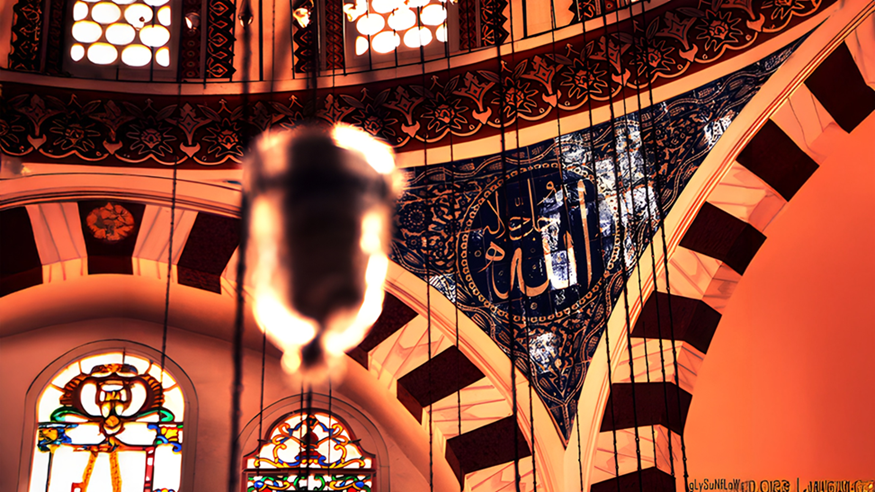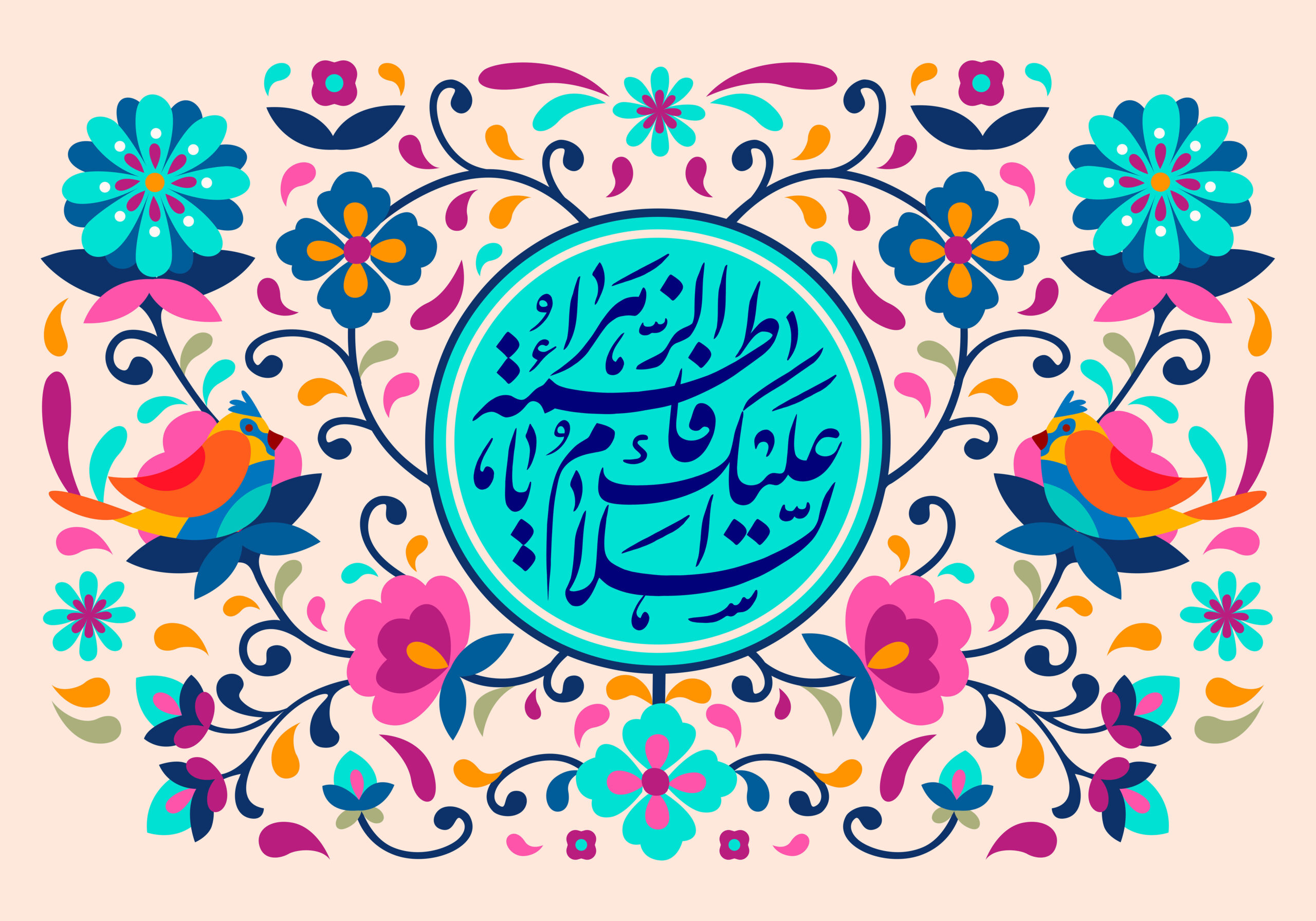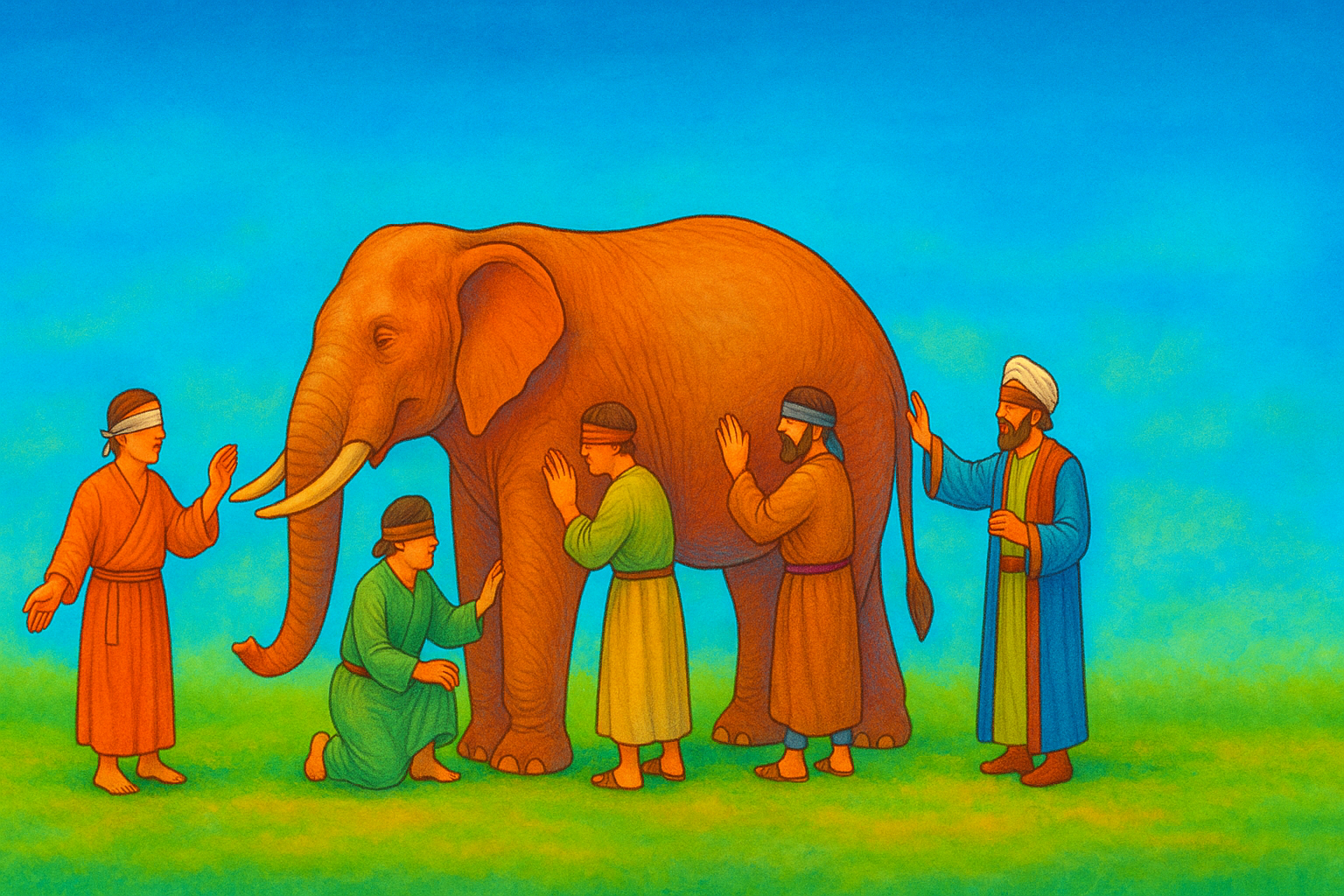I might be told soon that I’ve inflicted a great loss to humanity by not writing my dissertation in English instead of Persian. While not sharing the same sentiment or regret, I do feel academic activities in Shiʿi seminaries are worth bringing into the attention of potentially interested readers. A short report of my own work could thus be a stepping stone; less chances of compromising the author’s intent!
Many doors lead me to the topic I finally chose for my Master’s dissertation. Thanks to some personal readings, my first bout of interest in epistemology came slightly early for a seminary training. Perhaps similar to all first timers to epistemology, I was gripped by skepticism, it was only after reading Hossein Zadeh’s book on the topic that I felt I could recover, he is perhaps the most experienced teacher of comparative and Islamic epistemology there is in Qom, his works are however essentially based on the theories of Ayatollah Mesbah Yazdi. The latter’s book, Philosophical Instructions (Amuzish Falsafa) tries to provide an epistemological framework before delving into the nuances of ontology, Sadrians are so fascinated with.
Mesbah Yazdi’s Epistemology
Contrary to analytical philosophers who start with debating the definition of knowledge and its necessary and sufficient components, the definition of knowledge (ʿIlm) for Mesbah Yazdi, as for all Sadrians is self-evident. The existence of at least some instances of indubitable knowledge, is also intuitive. Even the most rigid of the skeptics, sub-consciously takes some knowledge for granted; his own existence or his doubt. However, what is it that makes some instances of knowledge indubitable? This is where knowledge by presence comes in, a type of knowledge without mental concepts; knowledge without intermediaries between the knower and the known, so the question of correspondence doesn’t even hold here. Presential knowledge then becomes the bedrock of all certain knowledge, the first set of certain and indubitable statements called Wijdaniyyat, are its manifestations, such as the statement “I’m happy” when I’m actually experiencing the feeling, or the statement, “I exist”. Other statements relying only on presential knowledge for their affirmation (Tasdiq) are first category self-evident propositions.
Mesbah Yazdi like all Sadrians is a foundationalist, all other knowledge should thus fall back on these two sets of statements. How? Through logically valid arguments, ultimately originating from these two sets of statements and then building upon them sequentially. A logically valid argument containing these two sets of statements or the statements logically following from them is called a Burhan. The conclusion of a Burhan is always 100% certain knowledge. Such a strict condition is obviously not easily met, that’s why Mesbah Yazdi, in keeping with the Islamic philosophical tradition, is generally a bit skeptical about experimental sciences; he’s not against science, rather he doesn’t accord scientific findings the same level of “knowledgeness” he holds for metaphysical/philosophical findings obtained through a Burhan. What could possibly happen if a belief is not Burhani? That’s a story for another day.
Epistemology and Theology
To cut it short, this epistemology was my barrier against skepticism and I was quite initiated into this system, interestingly though, I found out later that many of the theological (Kalami) arguments, save the ones for God’s existence and his attributes, discussed in our theology classes wouldn’t meet this requirement or at least they weren’t necessarily shown to be referring back to either Wijdaniyyat or first-category self-evident propositions. This included the arguments for the necessity of imamate, or ʿIsmat, instead they would usually refer back to an Imami Kalami cornerstone; that it is necessary for God to guide us through a messenger who should carry a revelation. The principle is usually claimed to be a Burhan. But Burhan has seen different meanings to it throughout history and the principle itself has been around since a thousand years, weathering the storms of different Islamic epistemologies and morphing into various Islamic thought systems whilst even crossing sectarian boundaries. I wasn’t certain at any rate that it really was referring back to the two sets of statements.
To add to my woes, many of the contemporary hot debates of philosophy of religion in Iran and the wider Muslim world, between “reformists” and “traditionalists” could be logically traced back, in part, to the applications of the same principle. The debates usually involve high socio-political stakes and revolve around the nature of revelation, the prophet’s role in his teachings as a human being of his time and space, the nature of religious language, secularism, pluralism etc.
If I could then establish (or fail to!) that the necessity of divine revelation and prophet hood is a Burhan, I’d be hitting many big birds with a stone! At least that’s what I was thinking.
However, each stream of Islamic thinkers throughout Islamic history has preferred its own respective argument for the principle. There could be twenty such arguments. Whose argument should I critically evaluate? Yes, none other than Mesbah Yazdi’s himself.
The Argument for the Necessity of Divine Revelation and Prophet Hood
His argument from divine wisdom is a three step argument which proceeds like this in his book Amuzish Aqai’d (Theological Instructions):
1) The purpose for which God created human, is for him to attain perfection, felicity and eternal success, this is achieved through free-will and voluntary choice.
2) Human perfection through free-will and choice can only be attained if the humans are able to differentiate between the actions which lead to their ultimate success and the ones hindering their progress.
3) The usual epistemic tools; sense perception, experimentation and the intellect are insufficient for providing the knowledge necessary for a widespread, ultimate perfection in all human dimensions. If this limitation is not compensated for, the ultimate purpose of human creation, contrary to Divine Wisdom, would be rendered unattainable.
The conclusion of the argument then asserts that Divine wisdom necessitates the existence of an extra-ordinary epistemic tool called Wahy (revelation) and the person possessing this epistemic faculty is called a prophet.
Roughly each premise in the above argument became a chapter of my dissertation, each tasked with tracing the premise to a Wijdani or a first category-self evident statement.
Mesbah Yazdi explicitly assumes in this argument that some fundamental truths have already been established, namely Divine wisdom and the hereafter. I planned to only touch upon them to see if he had used the same rigorous epistemology, when dealing with these doctrines. Further, if a fundamental Sadrian principle had been shown to be a Burhan in his philosophical works, I’d only be tracing the premises of my arguments to that Burhan.
Thus began my dissertation, chapter 1 included the entire story above in detail and an examination of the key definitions involved.
Human Perfection
Chapter 2 was a visit to Divine wisdom and what it meant for a specific creation called human being. Does Divine wisdom, established through a Burhan in Islamic philosophy, actually mean that God would necessarily provide all the prerequisites of human perfection? But more fundamentally, what does human perfection mean and how is it defined?
The first step to understanding human perfection for Mesbah Yazdi, is identifying the human essence since perfection is a relative term and depends on what the subject in question is. Now ‘human’ has traditionally been defined as Haywan Natiq in Islamic Philosophy, Greek inheritance, it seems. ‘Natiq’ as Fasl e Akheer or the differentia of ‘human’, is usually considered to mean rational, ‘rational’ would then be conceptually analyzed variously, the human perfection would be seen to be the perfection of whatever constitutes the rational. This has been questioned though, Ayatollah Jawadi Amuli famously says, a human being is Hayyun Muta’allih (A living being seeking God).
I think, Ayatollah Mesbah Yazdi neatly avoids the trap of an Aristotelian definition; instead he opts for a simpler route. He does Jehat Yabi Amyaal e Fitri (tracing the trajectory of innate inclinations). Which of our desires and longings start from the very day we’re born and last till our death? Which innate inclinations do we always try to fulfill, ending up sacrificing other needs and wants in the process? Mesbah Yazdi demonstrates that we’re always seeking power, knowledge and love. Examining human yearning on these axes leads to another interesting fact, they’re insatiable, we as human beings are thus, consciously or sub-consciously, essentially seeking an infinite love, an infinite power and a limitless knowledge. Seen differently, we’re seeking endless pleasure, sacrificing everything to reach that and even at times mistaking the means for ends.
Echoing mystical ideas, few arguments then show that what we yearn for is actually attainable, it comes about with a self-realization that all belongs to God alone and that everything else is completely dependent upon Him. The realization, which by the way is not a mental phenomenon rather a clear knowledge by presence, reaches climax when man experiences a type of unity with the Divine, this, Mesbah Yazdi claims is the mystical Fana’ fillah, the entire process however, is termed proximity to God in the religious literature.
Human Perfection Through Free-will
I realized that the whole edifice seemed to have assumed that this perfection i.e. proximity to God should come about only as a result of our worldly actions, and that our actions do affect our proximity to God, but why? Couldn’t Sadrian substantial motion, all by itself ultimately bring about this end, even if after death? The question is critical. If human perfection isn’t necessarily dependent upon free-will and choice, then a knowledge of the relationship between our worldly actions and their effects on human felicity is not necessarily required.
Chapter 3 dealt with the above question. I think it’s the back bone of my work and what took most of my time and energies and caused most of the debates between me, my supervisor and the referee. Making use of a combination of interviews with different professors and Ayatollah Mesbah Yazdi’s own works, I was able to offer five arguments for the dependence of human perfection on human free-will and choice. Despite lengthy dialectical discussions, I couldn’t prove three of them to be a Burhan, one in my opinion only proved that human perfection could be acquired through free-will, the other one however, proved the point entirely; that human perfection, that is proximity to God, necessarily had to be a result of free-will and choice. The latter could be found at the very end of Mesbah Yazdi’s Naqd e Makatib Akhlaqi.
The argument relies on the nature of the human soul and its dynamics. Due to substantial motion, the human soul is in a constant flux, always seeking an avenue for perfection (kamal). Just by focusing its attention on either of its own multiple hierarchical facets, through intention (niyyat) and will (iradah), the soul sets it’s direction of movement, expanding or contracting in the process. If intention and attention is focused on God, it ‘expands’ in that ‘direction’. Attention, Will and Intention, may be externally stimulated but essentially fall in the domain of free-will and choice. With the dynamics of the perfection seeking human soul recognized, any action related to the biological human cannot be attributed to the human soul if not based on attention, will and intention.
The Need for a non-human Knowledge
It was a smooth sailing from there, with only a few obstacles in between, chapter 4 thus dealt with the need for knowledge, specifically a knowledge about the relationship between our worldly actions and their effects on eternal or other-worldly success. I tried to rephrase Mesbah Yazdi here based on my findings in the previous chapter. The knowledge being sought should provide a guaranteed, relatively detailed formula for stimulating the aforementioned attention and intention to a maximum, for the maximum number of human beings facing countless complex scenarios. Human sciences (rational and experimental) as well as human nature (fitrat) fail to meet these criteria, Divine wisdom thus cannot count on human knowledge to provide for human perfection.
The argument reaches its conclusion here; if it’s not the usual human sciences, then it’s has to be a prophetic revelation God is going to opt for. However, I found this a bit hasty. What about Mystical experiences? I argued, making use of the debates in contemporary philosophy of religion that even mystical experiences don’t suffice. Still however, can you pinpoint in a Burhani way, which other option, God is going to opt for if the above ‘human’ tools of knowing prove insufficient? I had to muster some more energy here whilst arguing against my own suggestion that the conclusion might be presupposing the existence of other minds, or relying on sense perception while claiming to be a rational argument.
Conclusion
In the end though, I concluded that the argument is indeed a Burhan and thus carries 100% epistemic value, but not surprisingly, it only proves the core claim, that it’s necessary for God to reveal His message through a prophet. Is he going to send only one prophet at the dawn of humanity and help a revealed text carry on the guidance mission till the end or is he going to send a prophet for every nation? The argument is silent on that. Likewise, the revelation cannot directly interfere with human free-will and choice, since the necessity of human perfection through free-will proved the necessity of the revelation in the first place. This implies, as Mesbah Yazdi notes too, that the argument doesn’t guarantee that the message should reach all and everyone. In addition, based on chapters 3 and 4, at least some levels and aspects of human perfection could logically have come about for a few human beings even without Divine revelation, but even that would have required a lot of chance, trial and error.
Although I’m not sure if my work contributed anything of worth to the field, with the grace of God, I was quite satisfied with the end product, it helped hone my skills but more importantly clarified my own questions concerning the topic and answered many of them. I wasn’t happy with the time I had to spend for it though. Each such endeavor also provides a good opportunity to realize your own limitations. I should deepen my understanding of various versions of Sadrian substantial motion and its relationship with the dynamics of the soul. I also felt my understanding of philosophical psychology required more coherence. I wasn’t expecting mystical ideas to be playing a fundamental role in Mesbah Yazdi’s works when I started; at least some knowledge of the Islamic mystical tradition could’ve lead to a healthier dialogue. Finally, the referee of my dissertation pointed out that at least some roots of Mesbah Yazdi’s argument could be traced back to previous Sadrian thinkers, despite having discussed a historical context, it seems this area could have been explored further.





Salaam ‘Alaykum Shaykh. I enjoyed the “fly on the wall” experience of being inside your brain and learned a lot. Thank You! May Allah (swt) bless you (Ameen). But, just so you are not told that you have “inflicted a great loss to humanity by not writing (your) dissertation in English instead of Persian,” can we have your thesis in English published on this site too, please? 🙂 Also, thank you from the bottom of my heart for this website. It is long overdue and I am looking forward to what I will learn from it In sha’ Allah. Jazakumullah khayran. May Allah (swt) accept your service, for verily He is All-Hearing, All-Knowing.